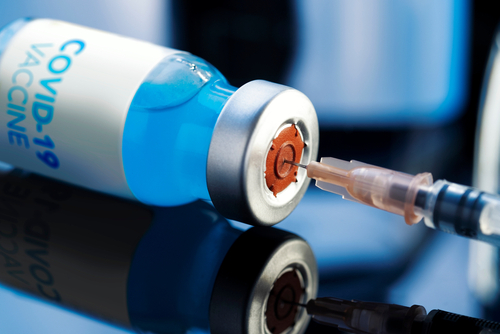CDC Adopts Advisory Recommendations for Initial Vaccine Distribution allowing nursing home residents to be prioritized for the COVID vaccine.
Residents of nursing homes and long-term care facilities and the workers who care for them will be among the first in America to receive coronavirus vaccines, says the Centers for Disease Control and Prevention. According to an article in the Washington Post, the CDC’s move to adopt this measure, which also prioritizes health workers, follows a recommendation from an advisory panel.
The panel, the Advisory Committee on Immunization Practices (ACIP), voted 13-1 on December 1 to prioritize nursing home residents, employees, and health care workers for the initial supply of the vaccine, which will be available in extremely limited quantity following the federal approval process. CDC Director Robert Redfield approved and adopted the recommendation as official guidance to states in advance of the vaccine’s availability, anticipated for mid to late December.
In determining who would comprise Phase 1a, the top-priority group to receive the initial doses of the vaccine, the panel overwhelmingly agreed to include the 3 million residents and employees of long-term care facilities, a sector of the population severely impacted by the pandemic, allowing nursing home residents to be prioritized for the COVID vaccine. Elderly residents and nursing home staff comprise 6 percent of cases in the US and nearly 40 percent of deaths from COVID-19. The single dissenting vote from the ACIP stemmed from concern over the unknown impact of the vaccine on elderly nursing home residents, a population not tested in safety studies to date.
Deciding how the CDC guidance will be implemented—including how to prioritize between healthcare workers, who are responsible for the functioning of hospitals, and vulnerable elderly nursing home residents—rests with the governors of each individual state. According to the Washington Post, Department of Health and Human Services spokesman Michael Pratt said governors will hear doctor recommendations and then will “make a determination of what works best for their communities based on input they receive and the circumstances on the ground.”
The ACIP are expected to make further recommendations over the next few weeks as federal regulators work to clear the vaccines developed by Moderna and Pfizer, and as more information becomes available on the efficacy of these vaccines across various age groups. Once the vaccines become available, the CDC will allocate doses proportional to the size of each state’s adult population. Between Pfizer and Moderna, about 40 million doses of coronavirus vaccines—enough to inoculate 20 million Americans with the two-dose requirement—ought to become available and be distributed by year’s end, with the initial 6.4 million reaching certain communities within 24 hours of federal clearance, as per Operation Warp Speed, the administration’s initiative to expedite distribution of the vaccine. As for the nearly 310 million Americans left waiting, the CDC expects that somewhere between 5 million and 10 million vaccine doses will be sent out on a weekly basis after this initial distribution, with priority assignations yet to be determined.
Fighting for Your Loved One during Trying Times
The impact of the coronavirus pandemic on Pennsylvania and New Jersey nursing homes makes for uncertain times for your loved one. Securing the well-being and safety of your loved one is of the utmost importance, as is determining how well your loved one’s Philadelphia/PA or NJ facility meets every health and safety requirement. If the safety or quality of care of a Pennsylvania or New Jersey nursing home during COVID-19 raises your concern, or if you suspect neglect, abuse, or fraud has occurred at the Pennsylvania, Philadelphia, or New Jersey nursing home where your loved one lives, please contact nursing home abuse attorney Brian P. Murphy to discover your legal rights and options.







